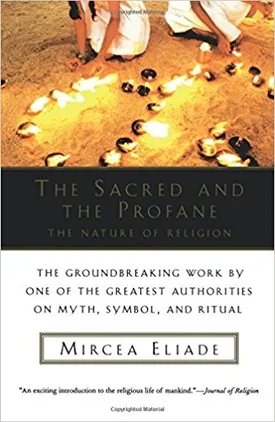Mircea Eliade
Mircea Eliade (1907-1986) was an influential Romanian-born philosopher, historian, and novelist whose works exerted a profound influence on both religious studies and the wider humanities. Drawing primarily from the fields of religious studies, anthropology, and philosophy, Eliade developed his own particular approach to examining religious metaphor and symbolism. He was renowned for producing a vast body of scholarly works on topics such as mythology and ritual, and his research examined the similarities between religious concepts and exposed the universal underlying symbolic framework present in all of the world's religious traditions.
Eliade's work often focused on what he termed the "dialectic between profane and sacred time." This concept posited that humans experience two basic temporal orientations—one of the mundane, everyday world and one of religious perpetuity. Eliade argued that the human search for ultimate meaning, purpose, and identity is often found through establishing a connection between the two realms. This observation is especially prominent in his work on shamanism, where he explored the ritualistic aspects of regularly transcending from the mundane world to a sacred realm of reality.
In addition to his scholarly works, Eliade was also a prolific novelist who often drew on Eastern spiritual traditions for inspiration. Among his most notable works is his novel The Forbidden Forest, which tells the story of a Hungarian prince who journeys through the wilderness and discovers the secrets of a mystical order of supernatural beings. Eliade's novels always explore the tension between the mundane and the divine in a way that is both emotionally and intellectually compelling.
Eliade's most famous work, however, is arguably the bestselling discussion of the perennial philosophy,The Myth of the Eternal Return (1954). In this work, Eliade examines the idea that all of history occurs in cycles and that, no matter how much things seem to have changed, everything in the universe maintains its essential pattern. By connecting the cyclical aspect of life with the figures and symbols found in various religious and mythological texts, Eliade presents a compelling synthesis of ancient wisdom and modern thought.
For Eliade, the goal of religious studies was not simply to uncover the historical background of various beliefs and practices; rather, what he sought to do was to elucidate a spiritual reality that transcended the mundane and everyday, allowing people to connect to the divine through experiencing sacredness in the everyday. This approach to religious studies has become a cornerstone of the field and has been adopted by a number of scholars whose works have benefited from Eliade's leitmotif of profane and sacred time.
In an intellectual world that is increasingly secular, Eliade's intellectual legacy is one that reminds us of what can be gained through understanding the logic that underpins religious belief systems and the profound implications they still have upon modern life. His works remain essential readings for anyone seeking a deeper understanding of the spiritual life and remain essential for anyone interested in religious studies.

